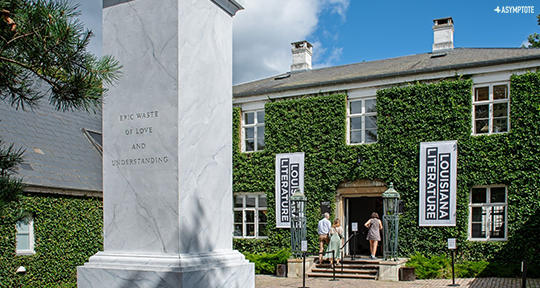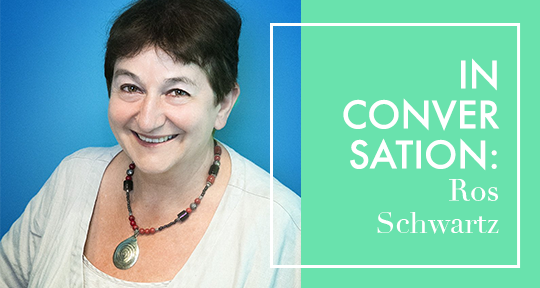Ros Schwartz is an award-winning British translator who has translated over one hundred works of French fiction and non-fiction into English, with a strong emphasis on authors including Dominique Eddé, Aziz Chouaki, and Tahar Ben Jelloun. Her most recent translations are Swiss-Cameroonian author Max Lobe’s A Long Way from Douala (Hope Road, 2021) and Does Snow Turn a Person White Inside (HopeRoad, 2022), and she is part of the team re-translating the works of Georges Simenon for Penguin Classics. Ros was made a Chevalier dans l’Ordre des Arts et des Lettres in 2009.
Earlier this year, I had the honour of interviewing Ros Schwartz to find out about her approaches to literary translation, and in particular, about the art and complexities of translating multilingualism. Owing to histories of colonisation and migration, literatures are increasingly hybrid and multilingual. A work composed in “French” may bear explicit or implicit traces, tones, and vocabularies of other languages, and processes of translation may be embedded within the source text itself. Such linguistic entanglements in source texts challenge the very boundaries of languages and pose distinct challenges for the literary translator. In this interview, Ros Schwartz shares her own experiences about translating multilingualism in creative and innovative ways.
Sheela Mahadevan (SM): Ros, you come from a multilingual background, and you have translated several multilingual works which depict experiences of exile and migration. You also have a Jewish ancestry and have translated a work which relates to this theme, entitled Traduire comme Transhumer (Translation as Transhumance) by Mireille Gansel (Les Fugitives (UK) and The Feminist Press (USA), 2017). How does your own background and experience of migration and multilingualism intersect with your career as a translator, and how does Gansel’s work influence your thinking about translation?
Ros Schwartz (RS): My background has some similarities with that of Mireille Gansel. I too am Jewish—second generation—and my grandparents spoke only Yiddish, so although different from Gansel’s experience, I share that multilingual background common to families descended from exiles. Gansel interweaves her memoir with reflections on the art of translation, constantly interrogating and refining her practice. Her ethos chimes with mine and her approach to translation helped me better articulate my own; by translating the book and being inhabited by it for many months, I was able to engage with Gansel’s ideas in a way beyond that of a casual reader.
SM: You have translated numerous multilingual literatures into English, including the Lebanese Francophone novel Cerf-volant (Kite) by Dominique Eddé (Seagull Books, 2003). The novel depicts multilingual experiences; sometimes the characters speak in French, sometimes they speak in Arabic, and sometimes they translate between the two. The work is also about multilingual writing and casts light on the ways in which another language can haunt the primary literary language. Could you tell us more about your experience of translating this hybrid work? To what extent is it necessary to collaborate with native speakers of the additional language or the author in the translation process?
RS: I worked very closely with the author. We went over the translation together literally line by line, in person, closeted in her Paris apartment. I had her read passages out loud to help me capture the intonations and rhythms. I would never have attempted a translation like this had I not been able to collaborate with the author.
The novel has a different sensibility, and its non-linear narrative took me out of my comfort zone. The reader is plunged straight in and the narrative is a mosaic, which the reader gradually has to piece together. Eddé’s writing functions like an Impressionist painting, with deft brushstrokes that evoke characters, places, and atmospheres. It has disconcerting metaphors: “. . . une bouche à mi-chemin du cœur et de l’oiseau.” Literally: “a mouth half-way between a heart and a bird.” You don’t question it in French, partly because of the music of the language. For the English, I made it slightly more explicit: “a mouth that was shaped like a heart or a bird.” READ MORE…





